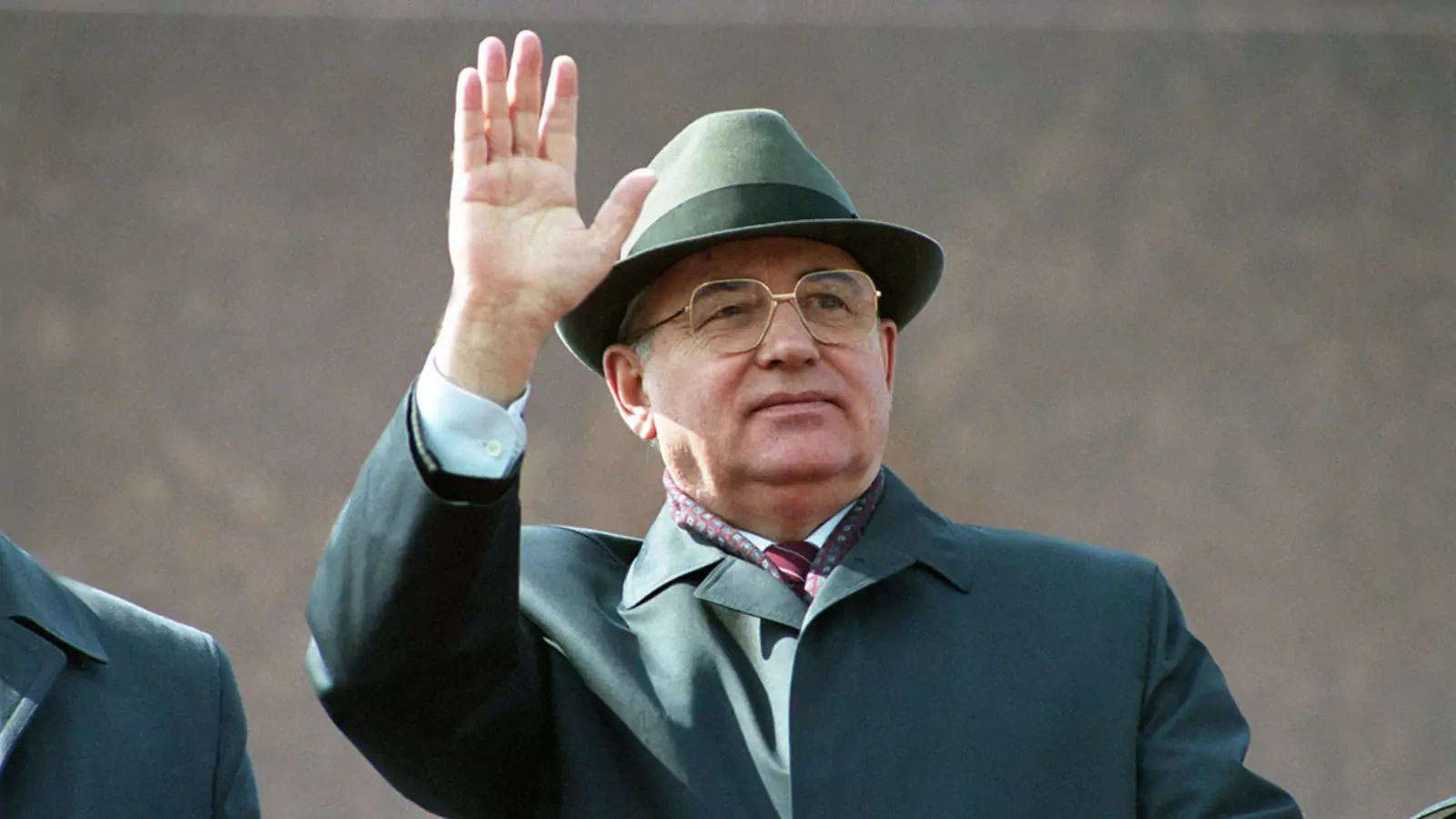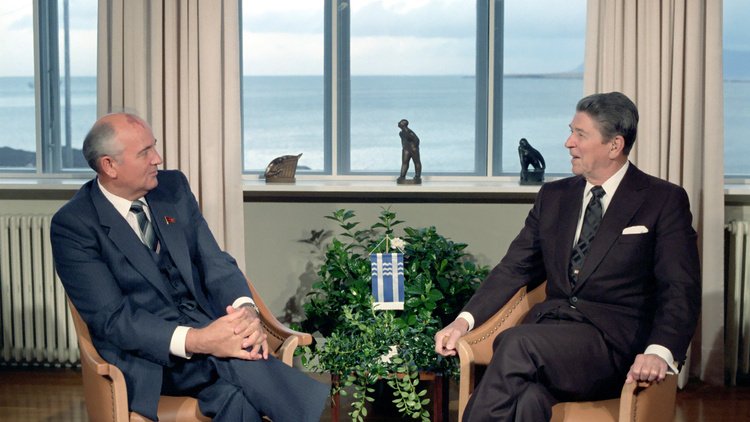Gorbachev: Conflicted Catalyst of Cold War’s End

Mikhail Gorbachev will be remembered in the West for laying the basis for more constructive relations to ease the end of the Cold War, but vilified in Russia for speeding the Soviet Union’s demise.
August 31, 2022 10:45 am (EST)

- Article
- Current political and economic issues succinctly explained.
The last Soviet leader, Mikhail Gorbachev, came to power in 1985 determined to transform a stagnant Soviet Union into a dynamic, prosperous, and powerful socialist country; he never developed a coherent, concrete plan to do that. Rather, he improvised as the political and economic ground shifted around him. That rattled the hard-liners who thought he was destroying the Soviet Union and dismayed the reformers who feared he was moving too slowly to save the country. After six years, the hard-liners had enough: They failed to oust him in an ill-conceived coup attempt in August 1991, but wounded him sufficiently so that the reformers could ease him out of power at the end of that year—as the country he sought to revive collapsed, and a new Russia emerged.
Nevertheless, during his six years in power, Gorbachev accomplished extraordinary things at home and abroad. At the same time, he unleashed forces that he could not control and that would reshape his country and the world, at times in ways he did not desire.
More on:
At home, he ended communism’s stranglehold over Soviet society, though that was not his original intention. Indeed, when he assumed power, he was a resolute communist who thought he could revive the original Leninist spirit, introduce efficiencies into the planned economy, and ensure that the Soviet Union would enter the next century as a superpower. But as reform stalled, he came to see that communism itself was at the root of the problem, and he did not flinch at the implications. He ultimately abandoned Marxism-Leninism and began to dismantle the power of the Communist Party in favor of a more open political system. His insistence that leaders be accountable to the people (he unwisely made an exception for himself) led to the freest and fairest elections in Soviet (and post-Soviet) history.
U.S.-Russia Nuclear Arms Control
1949–2021
View timelineAbroad, Gorbachev understood that he had to reduce Cold War tensions with the United States so that his country could focus on internal reconstruction, including reforming an overblown military-industrial complex that weighed on the economy. But his way of reducing tension broke with Soviet (and Russian) tradition. He rejected the pursuit of military superiority and settled for sufficiency; abandoned the Marxist class-based revolutionary approach to foreign affairs in favor of pursuing common human values; supported a common European home based on shared (he would say “democratic”) norms; and was committed to the peaceful resolution of disputes. He recognized every country’s freedom to choose its political future, an implicit renunciation of the Brezhnev Doctrine, which asserted that Moscow had the right to use all means necessary, including force, to keep a country in the socialist camp. These steps enabled Gorbachev to find common ground with U.S. Presidents Ronald Reagan and George H.W. Bush and to negotiate a peaceful end to the Cold War in 1989.
Curiously, Gorbachev’s achievements were enabled by a political blind spot, unusual for a Soviet leader. He never understood the power of nationalism pulsing throughout the vast Soviet sphere. And so he was surprised when nationalists exploited his policy of glasnost—meaning openness or transparency—to revive narratives that challenged Moscow’s control over the ethnic republics that formed the nominal Soviet federation. He thought, naively, that reforms in Eastern Europe would be grounded in an affection for the genuine socialism he was promoting rather than a national sentiment that would seek to escape the oppressive grip of Russia. He was taken aback during the revolution of 1989 when old-time, hard-core Communist leaders were replaced not by reform-minded figures in his own mold but by anti-Communist nationalists. His underestimation of nationalism and the political forces it unleashed ultimately produced the collapse of both the Eastern Bloc and the Soviet Union itself.
Gorbachev proved to be a unique Soviet (and Russian) leader, in that he refused to use force to save Soviet positions in Eastern Europe or his own position at home. He quickly disassociated himself from Moscow-inspired violence against Georgia and the Baltic states as the Soviet Union started to unravel. More important, he recoiled from using force to preserve the vast buffer zone in Eastern Europe that Joseph Stalin had built at such a great cost in blood and treasure at the end of World War II. Gorbachev was correct in assuming that the use of force would fatally undermine his reform program; nonetheless, no other Soviet or Russian leader would have exercised such restraint during such a politically perilous period.
In the West, Gorbachev will be remembered for his role in helping to end the Cold War, his willingness to break with Soviet and Russian traditions, and his efforts toward more constructive relations with the United States. In Russia, he has been vilified for pursuing policies that led to the demise of a great Russian state in the guise of the Soviet Empire, one that President Vladimir Putin has spent nearly a quarter century trying to rebuild. The treatment there of Gorbachev’s passing will likely underscore the gulf now separating Russia and the West, something that Gorbachev spent his tenure trying to bridge.
More on:
 Online Store
Online Store
